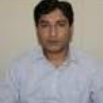
Muhammad Naeem Ahmed Khan
Work place: Shaheed Zulfikar Ali Bhutto Institute of Science & Technology, Islamabad, Pakistan
E-mail: mnak2010@gmail.com
Website:
Research Interests: Computational Engineering, Software Engineering, Computational Learning Theory, Analysis of Algorithms, Engineering
Biography
Muhammad Naeem Ahmed Khan: Obtained D. Phil. degree in Computer System Engineering from the University of Suusex, Brighton, England, UK. Presently, he is affiliated with Shaheed Zulfikar Ali Bhutto Institute of Science and Technology (SZABIST), Islamabad, Pakistan. His research interests are in the fields of software engineering, e-governance, cyber administration, digital forensic analysis and machine learning techniques.
Author Articles
An Analytical Review of Stereovision Techniques to Reconstruct 3D Coordinates
By Raheel Ahmed Muhammad Naeem Ahmed Khan
DOI: https://doi.org/10.5815/ijitcs.2013.07.10, Pub. Date: 8 Jun. 2013
Stereovision based on 3D environment reconstruction provides a true picture of real world situations for detection of objects’ locations. This approach has specific use in the scenarios like identifying traffic jams on the roads, locating curves and bends on the roads, finding obstacles in the construction sites, etc. This paper describes different methods used in stereovision to detect images like use of trinocular stereovision, calculating correlation between left and right contours for achieving accuracy, use of prior information with intrinsic and extrinsic parameters, detection of side lane and 3D points of guardrails and fences, use of dense stereovision information, especially in urban environment. The paper also discusses Forward Collision Detection method that uses Elevation Map with Dense Stereovision, tracking of multiple objects using two-level approach and building an enhanced grid that involves obstacle cells. Hybrid dense stereo engine, which is used in urban detection scenarios is also discussed in the paper along with a solution of lane estimation in different situations using particle filtering method. Pattern matching using 3D image for pedestrian detection and lane estimation based on the particle filtering with greyscale images are also explored. The use of the rectangular digital elevation map for transforming stereo based information and the methodology used to enhance the sub pixel accuracy are also part of the paper.
[...] Read more.Analysis of Requirement Engineering Processes, Tools/Techniques and Methodologies
By Tousif ur Rehman Muhammad Naeem Ahmed Khan Naveed Riaz
DOI: https://doi.org/10.5815/ijitcs.2013.03.05, Pub. Date: 8 Feb. 2013
Requirement engineering is an integral part of the software development lifecycle since the basis for developing successful software depends on comprehending its requirements in the first place. Requirement engineering involves a number of processes for gathering requirements in accordance with the needs and demands of users and stakeholders of the software product. In this paper, we have reviewed the prominent processes, tools and technologies used in the requirement gathering phase. The study is useful to perceive the current state of the affairs pertaining to the requirement engineering research and to understand the strengths and limitations of the existing requirement engineering techniques. The study also summarizes the best practices and how to use a blend of the requirement engineering techniques as an effective methodology to successfully conduct the requirement engineering task. The study also highlights the importance of security requirements as though they are part of the non-functional requirement, yet are naturally considered fundamental to secure software development.
[...] Read more.Other Articles
Subscribe to receive issue release notifications and newsletters from MECS Press journals